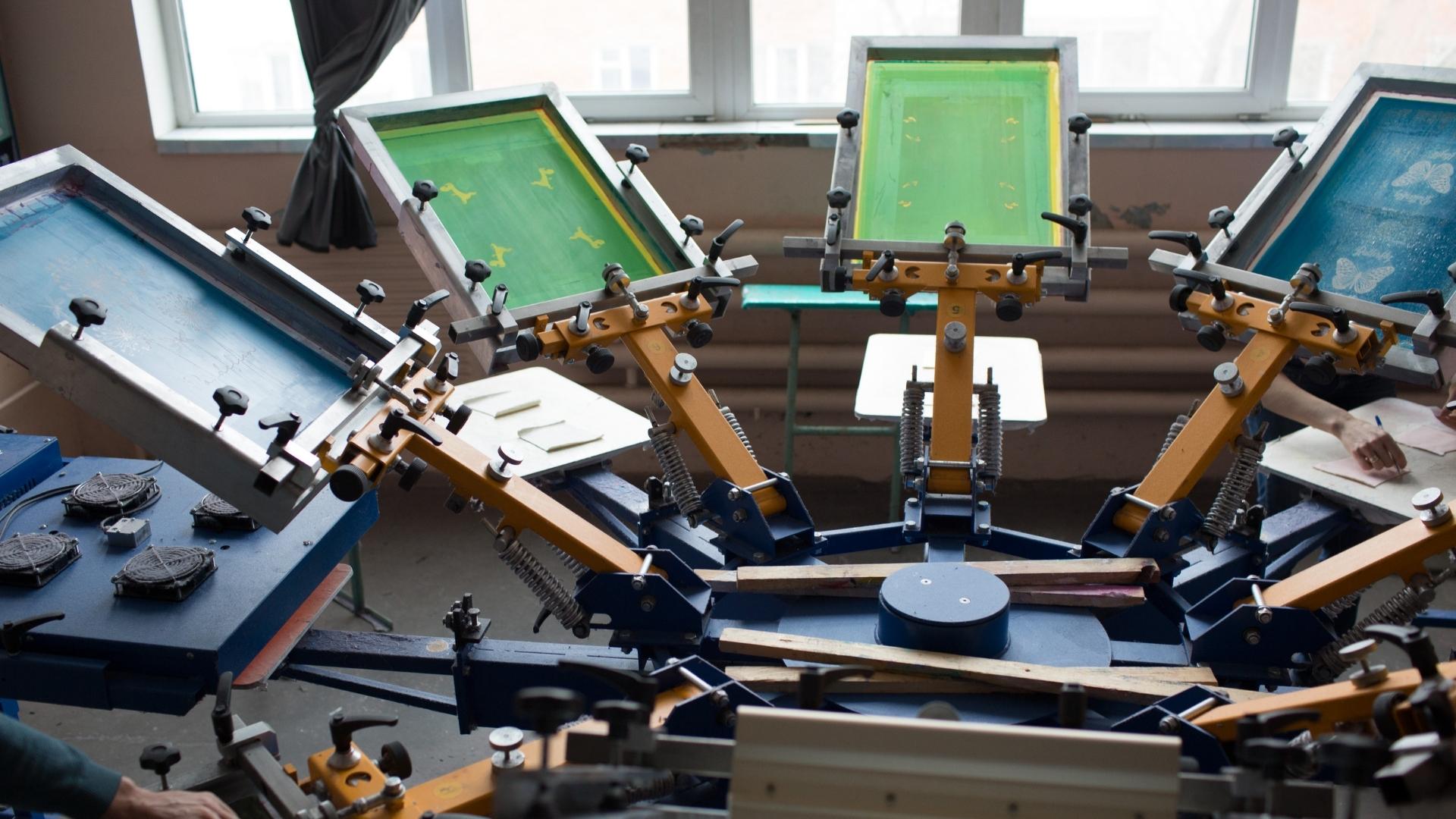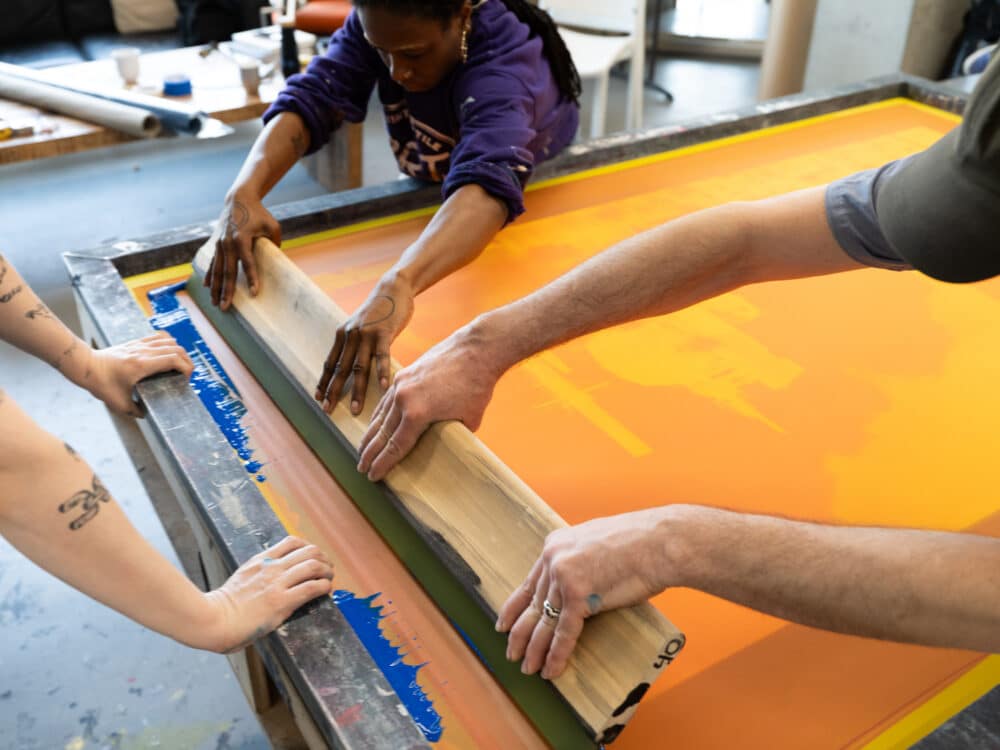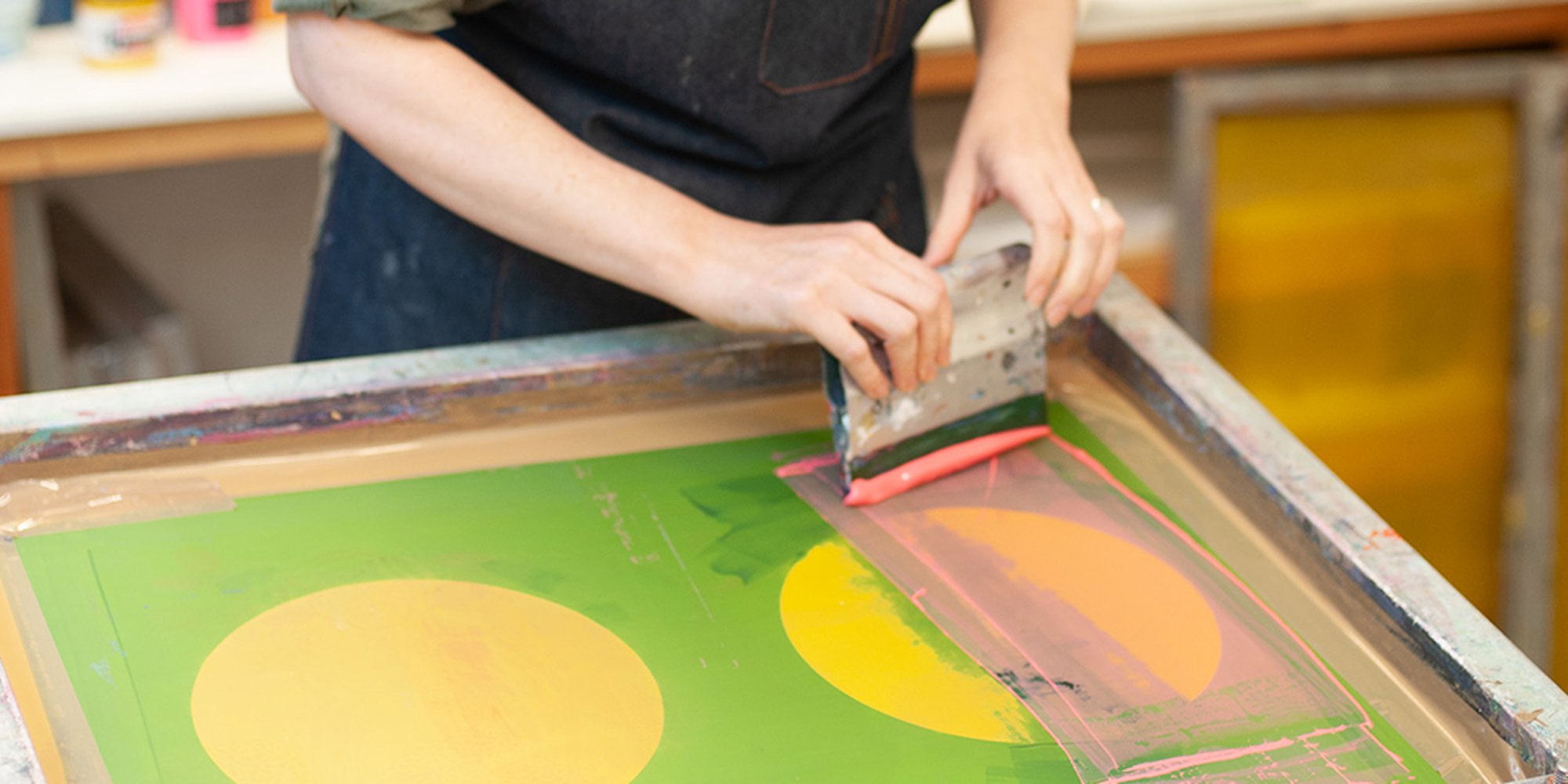The Crucial Overview to Understanding Screen Printing and Its Versatile Makes use of
Screen printing has an abundant history that goes back to old times, developing right into a sophisticated method utilized throughout numerous sectors today. This overview discovers the ins and outs of the screen printing process, outlining its applications in home, advertising, and fashion decoration - 10:9 Design reviews. Comprehending these principles can open up innovative possibility for both artistic and industrial jobs. The following sections will disclose essential ideas and strategies to enhance one's screen printing endeavors
The Background of Screen Printing
Screen printing has origins that map back centuries, its advancement reflects the technological and artistic improvements of numerous societies. Stemming in old China, the technique was at first made use of for enhancing fabrics and later infect Japan, where it came to be integral to Ukiyo-e woodblock printing. The method shifted to Europe in the 18th century, where it got appeal amongst craftsmens and business printers. The invention of photo emulsion in the 20th century transformed screen printing, permitting more elaborate designs and greater efficiency. Musicians like Andy Warhol better moved its popularity, using the medium to develop legendary jobs that combined commercialism and great art. By the late 20th century, screen printing had established itself as a versatile technique, employed in vogue, advertising and marketing, and art. Today, it proceeds to advance, integrating electronic modern technology and broadening its applications throughout numerous sectors.
The Screen Printing Process Explained
Screen printing changes imaginative visions right into concrete designs via a collection of accurate actions. An image is developed and then moved onto a screen, generally made of great mesh fabric extended over a frame. A light-sensitive emulsion is used to the screen, which is subjected to light, setting in areas not covered by the photo. After rinsing the unhardened emulsion, a pattern is formed.
Next off, the screen is positioned over the substrate, whether it be material, paper, or another material. Ink is after that pushed with the open locations of the stencil utilizing a squeegee, transferring the design onto the substratum listed below. This process can be repeated for several shades, requiring separate displays for each color. The printed product is healed using warm to ensure the ink sticks properly, resulting in a long lasting, vibrant layout all set for usage.
Kinds Of Screen Printing Techniques

In addition, specialized strategies, such as discharge screen printing, get rid of color from the fabric to create softer prints, while foil screen printing uses metal aluminum foil to attain a glossy coating (10:9 Design near me). Each strategy uses distinctive features, accommodating numerous innovative requirements and production check this scales, ultimately expanding the opportunities within the screen printing domain name
Applications of Screen Printing in Different Industries

Additionally, the signs and marketing sectors make use of screen printing for creating eye-catching display screens and banners. This method enables bold shades and intricate styles that capture interest. In electronic devices, screen printing is utilized for using conductive inks to circuit card, crucial for element links. The home décor sector embraces screen printing to produce unique layouts on textiles and wall art. On the whole, screen printing works as an important device across diverse fields, improving items with personalized and visually attractive graphics.
Tips for Effective Screen Printing Projects
While taking on a screen printing project, cautious focus to information can considerably improve the final result. Initially, picking high-quality materials is crucial; this includes the screen, inks, and substrates. Utilizing ideal mesh matters can influence ink deposition and information resolution. Prep work is just as important; comprehensive cleaning of screens and correct direct exposure times assure crisp prints.
Next off, precise registration is vital for multi-color prints. Using positioning tools can help achieve precise layering. look what i found Furthermore, testing prints on scrap materials before manufacturing assists determine prospective problems without squandering resources.

Regularly Asked Inquiries
What Products Are Finest for Screen Printing on Fabric?
Cotton and polyester blends are ideal for screen printing on fabric as a result of their longevity and ink absorption. In addition, specialty fabrics like silk or canvas can generate one-of-a-kind structures and finishes, enhancing the total style quality.
Just how Do I Clean and Maintain Screen Printing Equipment?
To maintain and cleanse screen printing devices, one should regularly clean screens with ideal solvents, check squeegees for wear, oil moving components, and store all items in a completely dry, dust-free environment to lengthen their lifespan.
What Are the Ecological Impacts of Screen Printing?
Screen printing can have substantial environmental influences, including chemical waste from inks and solvents, water use throughout cleaning procedures, and energy intake. Environment-friendly materials and lasting practices are essential for lessening these negative impacts.
Can Screen Printing Be Done at Home Successfully?
Screen printing can be efficiently done at home with the appropriate materials and methods. Enthusiasts look at here now can develop quality prints, though success depends upon their ability degree, equipment, and understanding of the process included.
What Are the Prices Related To Starting a Screen Printing Organization?

Starting a screen printing company includes expenses for devices, products, and office. Preliminary costs usually range from a few hundred to a number of thousand dollars, depending upon the range, high quality of machinery, and desired production capacity.
Screen printing has an abundant background that dates back to old times, advancing right into an advanced technique made use of throughout numerous industries today. An additional method, rotating screen printing, uses cylindrical screens, helping with continual printing on textile rolls, thereby improving performance for large-scale productions. In addition, specialized techniques, such as discharge screen printing, eliminate color from the fabric to develop softer prints, while aluminum foil screen printing uses metal aluminum foil to achieve a glossy surface. In the fashion field, screen printing is extensively made use of to develop vibrant layouts on clothing, enabling brand names to showcase their unique styles. Cotton and polyester blends are excellent for screen printing on fabric due to their sturdiness and ink absorption.